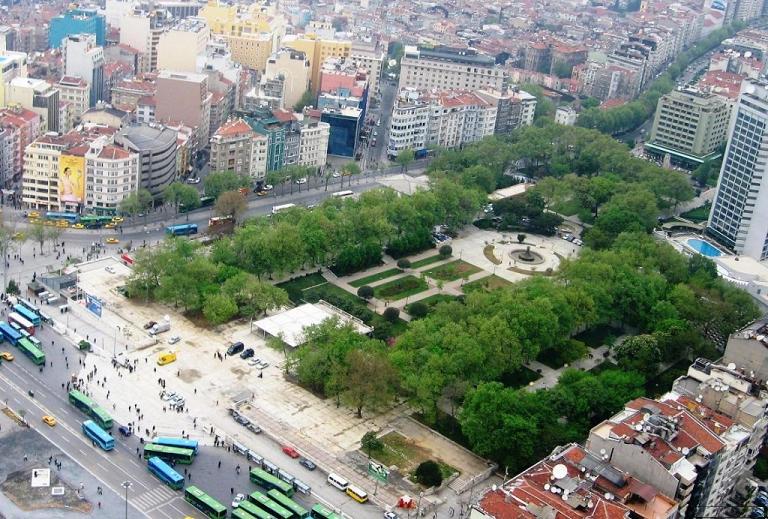A Turkish court has reinstated the ownership of the iconic Gezi Park to the Istanbul Metropolitan Municipality (İBB) from a private historical foundation. The IBB in 2021 had appealed the Tourism Ministry ruling that approved the foundation’s handover to the Sultan Bayezid Foundation.
The Istanbul Metropolitan Municipality’s long-winded legal battle to regain ownership of the iconic Gezi Park in the Taksim district was finalized on March 20.
A Turkish court has reversed the 2021 decision by the Culture and Tourism Ministry to allocate the public park’s ownership to the private Sultan Bayezid Foundation.
Four legal experts presented their findings on the foundation’s alleged cultural presence in the park. The reports concluded that the property in question could not be considered a cultural property created by the foundation.
The General Directorate of Foundations objected to the ruling, saying that the Taksim Topçu Barracks once stood at the site of the park. The barracks were built in 1808 and demolished in 1940 upon years of repurposed use as a football stadium.
The expert reports held that the barracks were also not built by the foundation in question and therefore could not be considered a foundation’s cultural asset.
The legal experts examined archival documents about the barracks’ construction and concluded that the structure had never belonged to any foundations.
The court thus annulled the Sultan Bayezid Foundation’s ownership document for the park and reinstated the premises to the İBB administration.
The process will be finalized if the appellate court and Court of Cassation (Yargıtay) should rule in favor of the İBB.
Gezi Park is a controversial location as the cause and epicenter of the 2013 protests. Located at the heart of Istanbul, the park is one of the few green areas in the bustling metropolis.
Environmental activists had set up an occupation at the park after hearing about the Justice and Development Party (AKP) government’s plan to “rebuild” the Topçu Barracks as a complex including a shopping mall, an opera house, and a mosque.
The park occupation soon erupted into nationwide anti-government protests, fueled by the outcry against the disproportionate intervention of the Turkish police.

